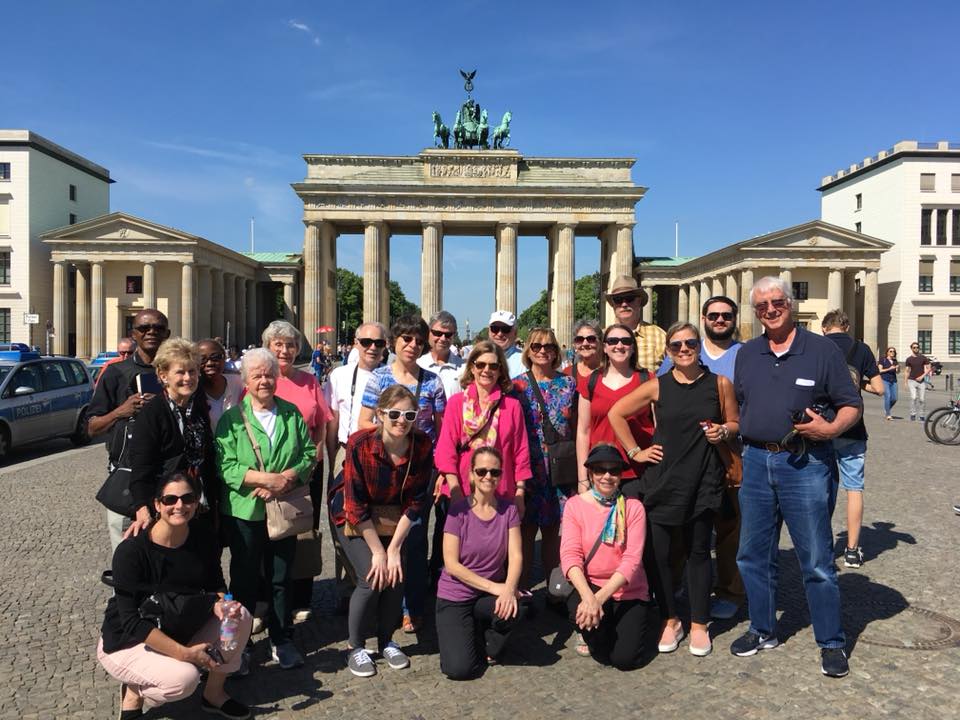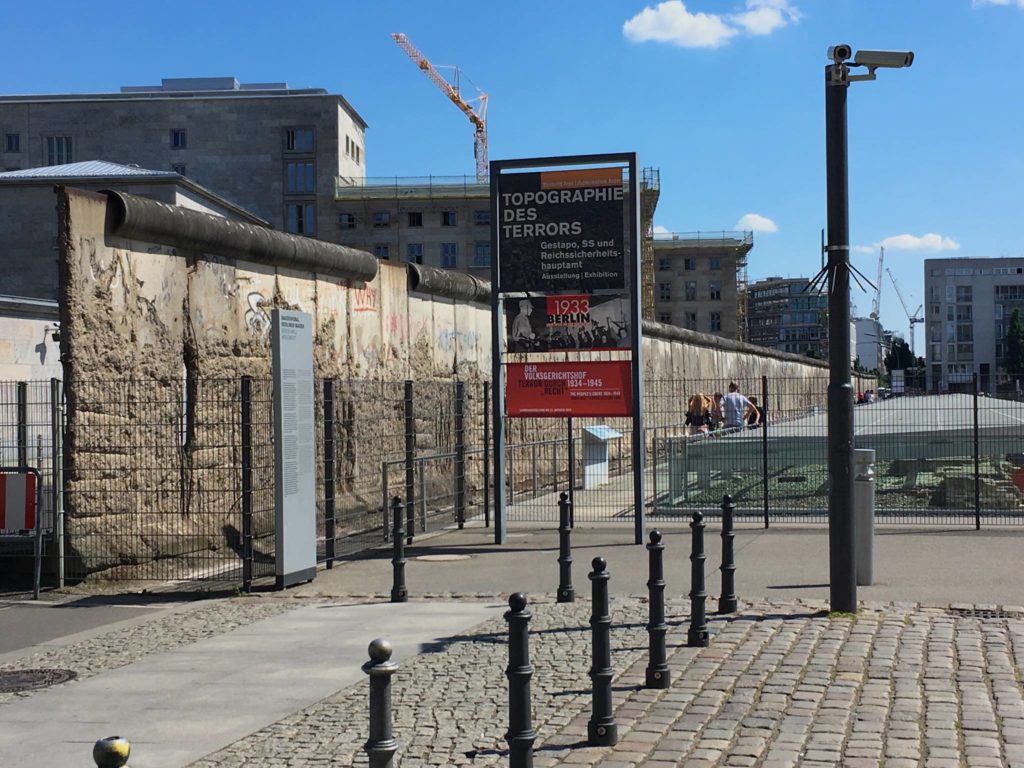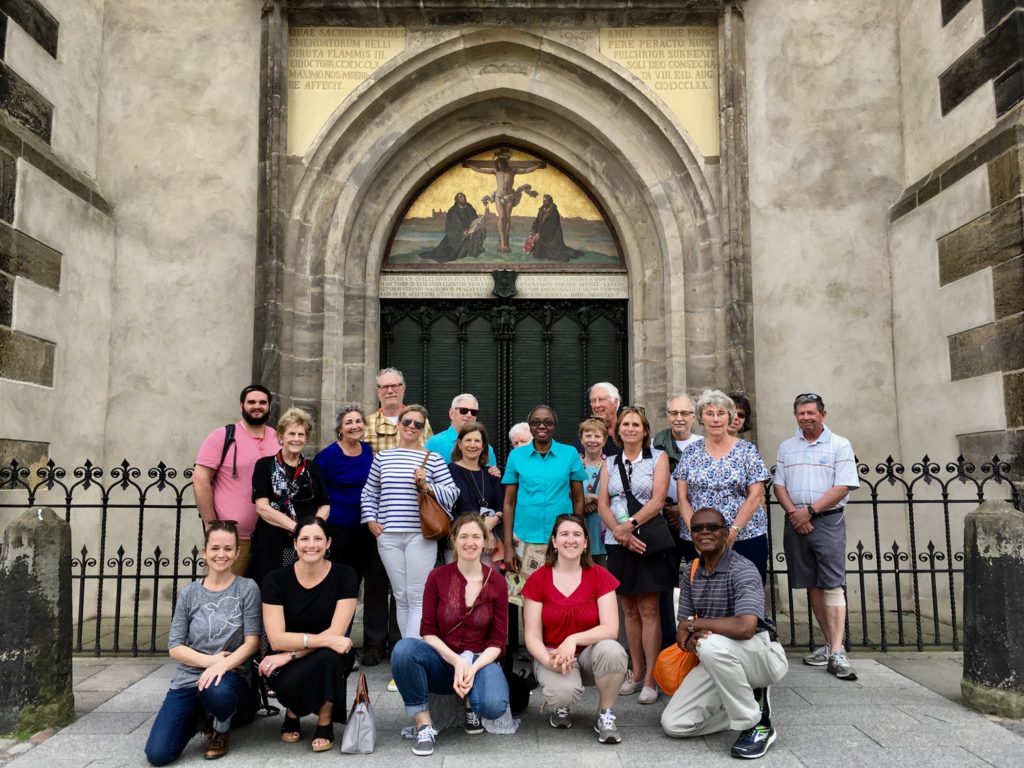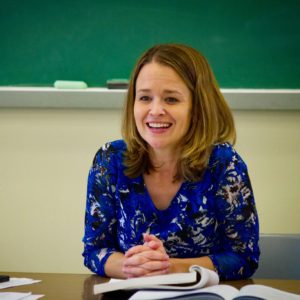Our Reformation Tour lands in Berlin

BY TRICIA VESELY
We began our tour in the historic city of Berlin, exploring some of the city’s sobering history in connection with Nazi Germany. We paused to remember the horrors of Hitler’s Third Reich at the Holocaust Memorial and the Berlin Wall, yet found hope in the city’s efforts to teach future generations about the past so as never to repeat the same horrors again.

Berlin Wall (Tricia Vesely)
In the evening we visited the largest Protestant cathedral in Germany, the Berliner Dom and marveled at the presence of the towering statues of Luther, Melanchthon, Zwingli, and Calvin. We stayed for evensong and let the glorious sounds of the organ lift us in worship.

Castle Church (Tricia Vesely)
The next morning, we began our expedition into “Lutherland.” We spent most of the day in Wittenberg touring the Lutherhaus, where Luther once lived and what is now considered the leading Luther museum in the world, and exploring the famous Castle Church, the site where Luther posted his “95 Theses.” We also visited the medieval era St. Mary’s Church, where the first Protestant service was held.
The end of the day brought us to Eisleben, site of Luther’s birthplace and death. We had a wonderful meal and are looking forward to exploring the charming town after a good night’s sleep!
Dr. Tricia Vesely is an adjunct assistant professor in Biblical Hebrew at Union Presbyterian Seminary. She is leading a “Tour of the Reformation” through Union’s Leadership Institute in partnership with First Presbyterian Church of Virginia Beach. Participants are traveling to Germany, France, and Switzerland, following in the footsteps of Martin Luther, Ulrich Zwingli, and John Calvin in commemoration of the 500th year anniversary of the Protestant Reformation.


